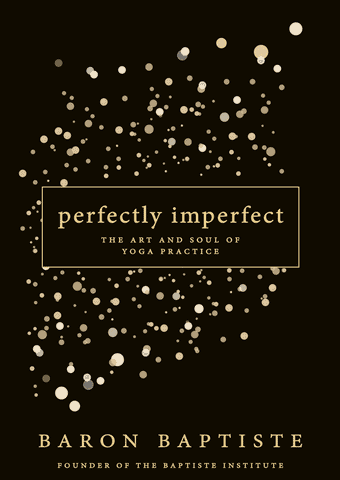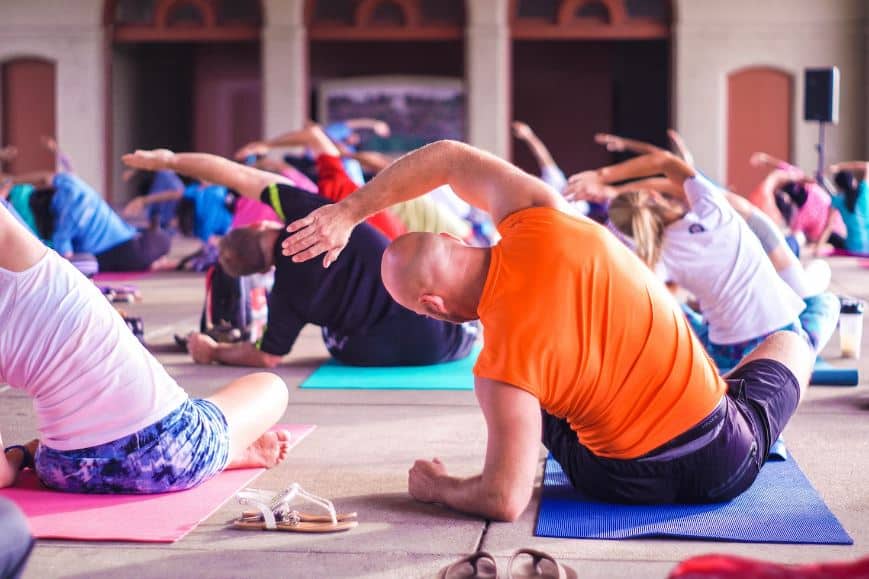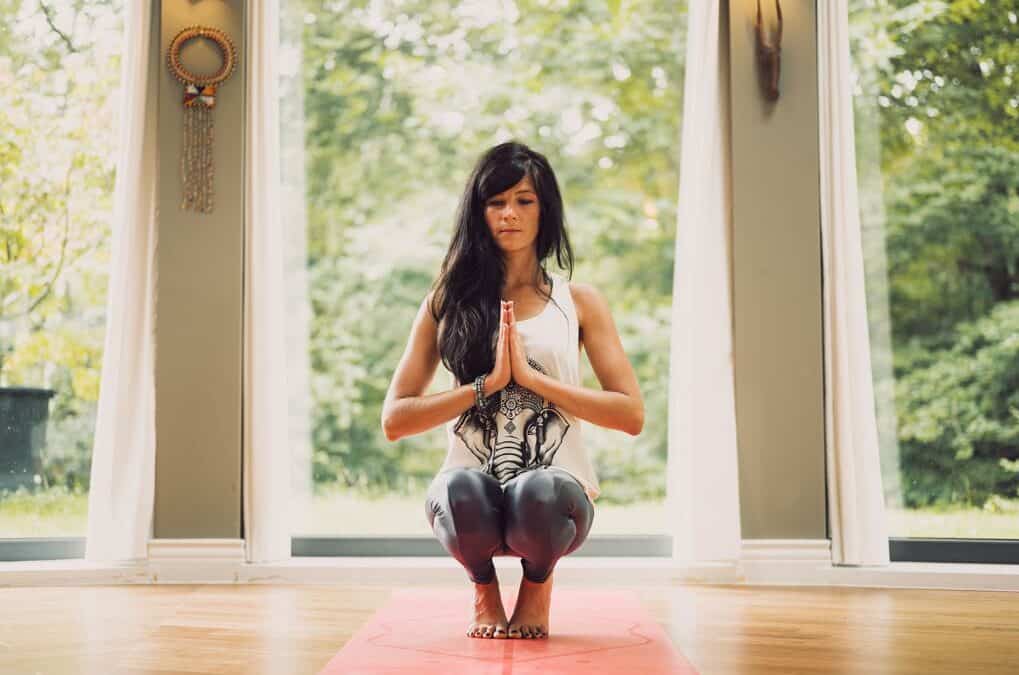“The mystery and challenge of yoga is that much is discovered through a rigorous physical practice, yet its greatest power lies beyond the realm of the body. Yes, at its most basic, yoga is a series of physical poses, but a practice aimed solely at physical thresholds is limiting. You might be strong, or flexible, or able to stick a beautiful handstand in the middle of the room, and that’s fulfilling and impressive on one level, but ultimately, so what? I love the feeling of being strong and in shape as much has anyone else. But as I’ve learned, it’s incomplete. Having a masterful yoga practice is about creating a whole new paradigm for yourself as human being – not just a human body. The work you do on the mat facilitates your whole life.”
I had seen a few posts on Instagram about Baron Baptiste’s “perfectly imperfect” and how good it was, but I wasn’t sold. I have never done a Baptiste training, and I had it in my mind that the training was overpriced and pretentious. I was browsing a book store in NYC and came across “perfectly imperfect”. I was struck by the branding on the outside, and after reading the inside flap of the book, I decided to give it a try.
The above passage is from the 3rd page in the introduction and as I read it, it struck me that I didn’t know a single thing about Baron Baptiste or Baptiste yoga. By the end of page 3, my opinion had shifted in a positive way, and I was eager to continue reading the book. The thoughts and opinions that Baptiste was expressing mirrored my own. Of course, I want to be able to do a beautiful, sturdy handstand… but is that what yoga is really about? I always encourage my students to come back to their “why” for showing up to class, and when I come to my “why”, it’s almost never so that I can do a badass handstand. Rather, it’s so I don’t scream at some idiot who cuts me off in traffic or so that I can attend family dinners and listen to my brother ramble about shit that simply isn’t true. It’s so that the things and people that grind my gears the most impact me a little bit less.
Perfectly Imperfect is made up of 13 short chapters, each with their own valuable lesson. Chapter 1 continues with a similar lesson is the paragraph above talking about “why do yoga?” (this is actually the title of the chapter. As I dug further into the book, I found myself nodding along in agreement to nearly everything that Baptiste was discussing. In chapter’s 2 and 3, he discusses “the dance of yes and no” and “what you say is so” (also the chapter titles!). These are two of my favorite chapters because they are based around the concept of turning your “no” into a “yes”. What does this mean? When you see a pose that you believe you can’t do, you won’t be able to do it. It is within our own heads that we create limiting beliefs for ourselves. We tell ourselves that we can’t. But why? If you showed up on the mat and in life as a “yes” for the things that you want in life, perhaps they would become a reality. What you say to yourself and what you believe in your head will truly become your reality.
As the book continues, Baptiste touches on important topics such as breath and focal point, as well as truly being where you are and becoming present. He also touches on how it is never too late to start over, and that if you put the work in, you will see the results. This is a concept that really resonates with me in yoga and in life because I often just want to be there. I want to have a strong, advanced asana practice, I want to be a great teacher, I want to be a successful entrepreneur. I want to just be there. Instead, I need to pull back and meet myself where I am and constantly remind myself to keep putting in the work to get where I want to be.
“What is a real yogi?
When I ask my students in teacher trainings this questions, here’s what they say:A real yogi is…
Serene
Peaceful
Compassionate
Open
Embracing
Loving
Patient
Kind
Vegetarian
Fit
Flexible
Enlightened
A “real yogi” conceals their imperfections. They hide the fact that they’re messy, that they lose their patience with their kids or curse when they get stuck in traffic, that they eat pizza. A “real yogi” certainly never lets others see they are flawed and says things like “I accept you” and, of course, “Namaste””.
This is one of the most powerful sections in perfectly imperfect, in my opinion. This sums up so concisely how a lot of yoga teachers feel and what a lot of their students perceive to be true. When you read through that list, it puts yoga teachers in a box. It confines them to only being a certain way, and as if it isn’t okay if they drink beer and eat pizza on a Friday night. Students perceive their yoga teachers to be all of these things, and they are disappointed when they realize that we are all simply real people. If anything shifts in the yoga industry, I believe it should be this. This idea that just because someone is teaching you yoga that they are perfect. Or, that just because you have your YTT you should be perfect. Because you shouldn’t. And in reality, you never will be. You are striving for the impossible if you are searching for perfection.
“What I discovered for myself was that the moment I feel that I’ve “arrived” because I’ve mastered some form is wen I fall into that realm of the repetitive robotic rut of dullness. I learned that to keep expanding, I need not to get caught up in the periphery pursuits and instead reach deep and get to the source of my experience.
Vinyasa – the flow from pose to pose – is a moving wheel on an unmoving hub at the center. You are the hub. The outer flow of the wheel keeps on moving, taking you someplace new. Why strive to “arrive” when that would mean the wheel of knowledge, inspiration, depth, and discovery would come to a halt?”
This was the last paragraph in a chapter called “strive not to arrive” and it was one of my biggest takeaways for my own personal practice, as well as for my teaching. I catch myself when I’m practicing simply wanting to get to the pose, and as my practice becomes more advanced, I find myself wanting to just be able to do challenging asanas. It is once again a reminder for me to work for the things that I strive for, and to remember to be okay with where I am in that moment. This transfers into my teaching as well because I consistently see students trying so hard to get into poses and then tuning out once they’ve gotten there. There is something to be learned from the poses that are easy to your body as well as the ones that are challenging.
Overall, perfectly imperfect is one of my favorite yoga books that I have read to date. It is modern, practical and easy to read with a lot of big takeaways. If you are looking for an inspiring and short yoga read, I would highly recommend this book!





0 Comments